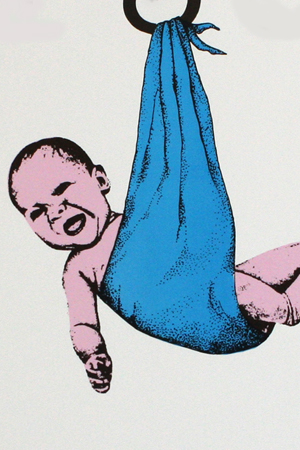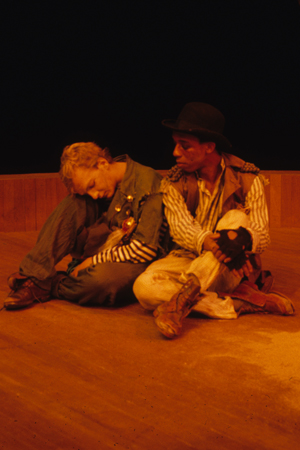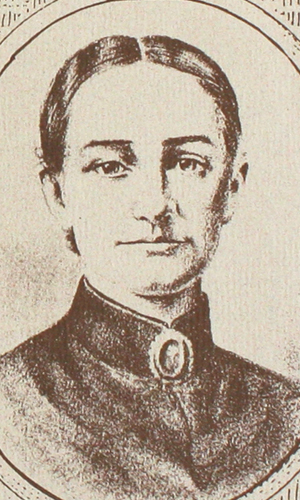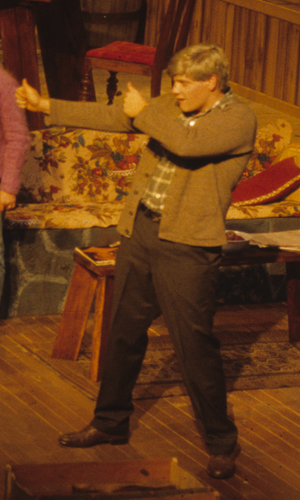Tom JonesOctober 5–8, 1988Adapted from Henry Fielding’s novel by David Rogers
Production Staff
Director: James Fisher
Scenic and Lighting Designer: Rob Hartz
Costume Designer: Laura Conners
Stage Manager: Jim Bedinger '91
Asst. Stage Manager: Kaizaad Navroze Kotwal '91
Assistant to the Director: Chris Campbell '89
Cast List
Partridge: Christopher A. Brown '89
Bridget Allworthy: John Flak '90
Squire Allworthy: Aaron A. Spetz
Jenny Jones (later known as Mrs. Waters): Jamie Ritchie Watson
Captain Blifil: Thomas Westgard
Blifil: Bill Craft
Tom Jones: Joe Longtin
Thwackum: Glen Elrod '91
Square: Jay Krause '91
Squire Western: Kenneth Osman '89
Sophia Western: Nikole Long
Miss Western: Jamie Ritchie Watson
Honour: Anne Enenbach
Justice Dowling: Doug Powers '92
Doctor: John Flak '90
Highwayman: Hollis DeWitt
Harriet Fitzpartick: Christine Amidon
Fitzpatrick: Jim Amidon '87
Whitefield: Kaizaad Navroze Kotwal '91
Lady Bellaston: Pam Ehrie
Constable: Roland Edwards-Morin '91
Roland: Roland Edwards-Morin '91
Nancy: Shauna DeClue
Olivier: John Flak '90
Gielgud: Jim Bedinger '91
Richardson: Nathan K. Risk '92
Guinness: Christopher Campbell '89
Ashcroft: Thomas Westgard
Thorndike: Hollis DeWitt
Production Assistance
Asst. Stage Managers/Sound: Roland Edwards-Morin '91, Nathan K. Risk '92
Asst. Stage Manager/Lights: John Flak '90
Master Electrician: Jay Baltisberger '89
Lightboard Operator: Todd Perry
Propsmaster: Todd Perry
Asst. Stage Managers/Props: Hollis DeWitt, Thomas Westgard
Graphics: Laura Conners
David Roger’s stage adaptation of the memorable Henry Felding (1707-154) novel is a comedy of high spirits and robust theatricality. Fielding’s Tom Jones, the most famous foundling in literary history, is the ward of Squire Allworthy of Somersetshire. Tom is deeply in love with Sophia Western, and she with him, but her father has arranged to marry her to the Squire’s squeaky nephew, (and heir), Blifil. The innocent romance of Tom and Sophia is discovered, Tom is banished from Somersetshire, and Sophia, with her maid Honor, sets out to find him. They are followed by Sophia’s father, his sister, Squire Allworthy and Blifil. All of them encounter a wild assortment of characters and adventures on the road from Somersetshire to London, with an amusing and unexpected conclusion that happily reunites Tom and his beloved Sophia.
This page is part of an ongoing project to document the history of the theatre productions performed at Wabash College. If you have information not included on this page, please contact the Theater Department or Professor Dwight Watson (watsond@wabash.edu).
|
Waiting for GodotNovember 16–19, 1988A play by Samuel Beckett
Production Staff
Director: Dwight Watson
Scenic and Lighting Designer: Rob Hartz
Costume Designer: Laura Conners
Stage Manager: Marc Lechleitner '88
Cast List
Estragon: Aaron A. Spetz
Vladimir: Charles Patrick Tyndall '92
Lucky: Kaizaad Navroze Kotwal '91
Pozzo: Quadiru Wright '92
A Boy: Eric G. Daman
Production Assistance
Propsmaster: Todd Perry
Soundboard Operator: Chris Brown '89
Sound Crew: Peter Keenan '89
Master Electrician: Jay Baltisberger '89
Lightboard Operator: Kip Aitken '91
Graphics: Laura Conners
One of the towering dramas of the twentieth century, Waiting for Godot by Samuel Beckett (1906-1989) has been described by critic Richard Watts as a “moving, often funny, grotesquely beautiful and utterly absorbing” play. Beckett’s story of two dilapidated bums waiting for the salvation of Godot has powerfully influenced the development of the modern theater and is undoubtedly the finest example of the plays of the Theater of the Absurd. As the two bums wait, a boy comes every day with the announcement that Godot’s arrival is imminent. But the unseen Godot never arrives, leaving the two bums to pass their time, “which would have passed anyway,” occupying themselves with meaningless rituals… and waiting. The play is a brilliant and bitter meditation, a dogged portrait of the resilience of man’s spirit in the face of little hope.
|
|
A Half-Remembered Dream: Narcissa Whitman's StoryFebruary 22–25, 1989A play by Tam Lin Neville Production Staff
Directors: James Fisher, Kaizaad Navroze Kotwal '91
Scenic and Lighting Designer: Rob Hartz
Costume Designer: Laura Conners
Stage Manager: Todd Perry
Assistant Stage Manager: Bill Craft
Cast List
Narcissa Whitman: Dana Warner Fisher
Marcus Whitman: Chris Brown '89
Settlers: Joe Longtin, Julian High '91, Diane Johnson, Todd Perry, Marge Jackson, Phil Jackson, Rob Hartz, Laura Conners
Jane Prentiss: Jamie Ritchie Watson
Eliza Spalding: Sue Ann Ford
Henry Spalding: Ken Osman '89
Perkins: Aaron A. Spetz
Sager Children
Elizabeth: Katy Kirtley
Matilda: Margriet Kreisher and Lissy Kreisher
Margaret: Margriet Kreisher and Lissy Kreisher
Jone: Daniel Fisher
Mary Anna: Anna Fisher
Catherine: Anna Stern
Henrietta: Jessica Rosenberg
Kimball: Nathan K. Risk '92
Production Assistance
Music: Diane Enenbach
Props: Nathan K. Risk '92
Lightboard Operator: Andy Goad '90
Wardrobe Master: Roland E. Morin '91
Dressers: Geoff Coates '89, Mike Johnston '89
Sound: Eric Lee '91
Deck Crew: Roger Brown '90, Richard Graves '92, Terry Blackburn '92
Graphics: Laura Conners
This theater piece, crafted after Tam Neville's poems about pioneer woman Narcissa Whitman (1808-1847) continues the Wabash tradition of presenting original stage works. Narcissa Whitman was one of the first two white women to cross the Rockies in 1836. Born in Prattsburg, New York, she attended Emma Willard's Female Seminary and became a school teacher. After marrying Marcus Whitman, Narcissa moved with him to the Pacific northwest as Presbyterian missionaries to the Indians. Surviving unbelievable hardships, Narcissa never saw any of her family again. She wrote letters to her mother and her sister in the form of diary entries. Inspired by this diary, Tam Neville has written moving poems capturing Narcissa's lonely and difficult life. Ms. Neville read some of her Whitman poems at Wabash College during Women's Week 1987-88 and has published her poetry in many periodicals including American Poetry Review, Mademoiselle, Ironweed, and others, as well as many anthologies.
This page is part of an ongoing project to document the history of the theatre productions performed at Wabash College. If you have information not included on this page, please contact the Theater Department or Professor Dwight Watson (watsond@wabash.edu).
|
|
The ForeignerApril 19–22 and May 12–13, 1989A play by Larry Shue Production Staff
Director: Dwight Watson
Asst. Director: Kaizaad Navroze Kotwal '91
Scenic Designer: Rob Hartz
Light Designer: Jay Baltisberger '89
Costume Designer: Laura Conners
Stage Manager: Roland Edwards Morin '91
Cast List
“Froggy” LeSueur: Hollis G. DeWitt
Charlie Baker: Christopher Miller
Betty Meeks: Jamie Ritchie Watson
Rev. David Marshall Lee: Steven A. Vierk '92
Catherine Simms: Ramona Zachary
Owen Musser: Simon A. Bogigian '91
Ellard Simms: Eric Daman
Townspeople: Bill Craft, R. Todd Perry, Nathan K. Risk '92, Aaron A. Spetz, Paul Toohey
Production Assistance
Master Electrician: John Panozzo '91
Lightboard Operator: David Short '89
Soundboard Operator: Charles Ngowe '92
Graphics: Laura Conners
The late actor/playwright Larry Shue's comedy The Foreigner won seven Obie Awards and Outer Critics Circle Awards (including Best New American Play and Best Off-Broadway Production). The scene of this comic romp is a fishing lodge in rural Georgia often visited by “Froggy” LeSeur, a British demolition expert who occasionally runs training sessions at a nearby army base. This time “Froggy” has brought along a friend, a pathologically shy man named Charlie who is overcome with fear at the thought of making conversation with strangers. So “Froggy,” before departing, tells all assembled that Charlie is from an exotic foreign country and speaks no English. Once alone, Charlie overhears more than he should, including the evil plans of a sinister, two-faced evangelist and his associate, a leader in the local chapter of the Ku Klux Klan. Presuming that Charlie, in his guise as a “foreigner”, can't understand their conversations, the minister and his henchman reveal most of their plans in front of him. The result is that shy Charlie is “liberated” by his disguise and sets out to assist the victims of the “bad guys.” The New Yorker drama critic, Edith Oliver, wrote of the play, “I laughed start to finish at one comic surprise after another.”
|
|




